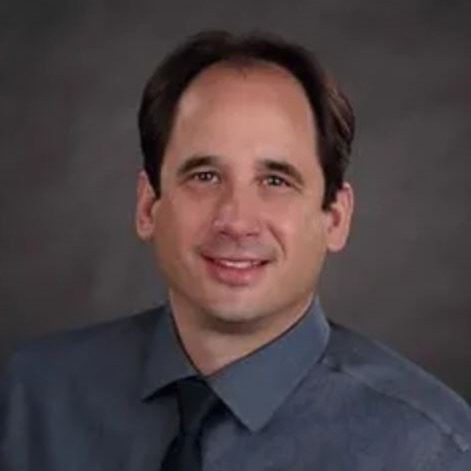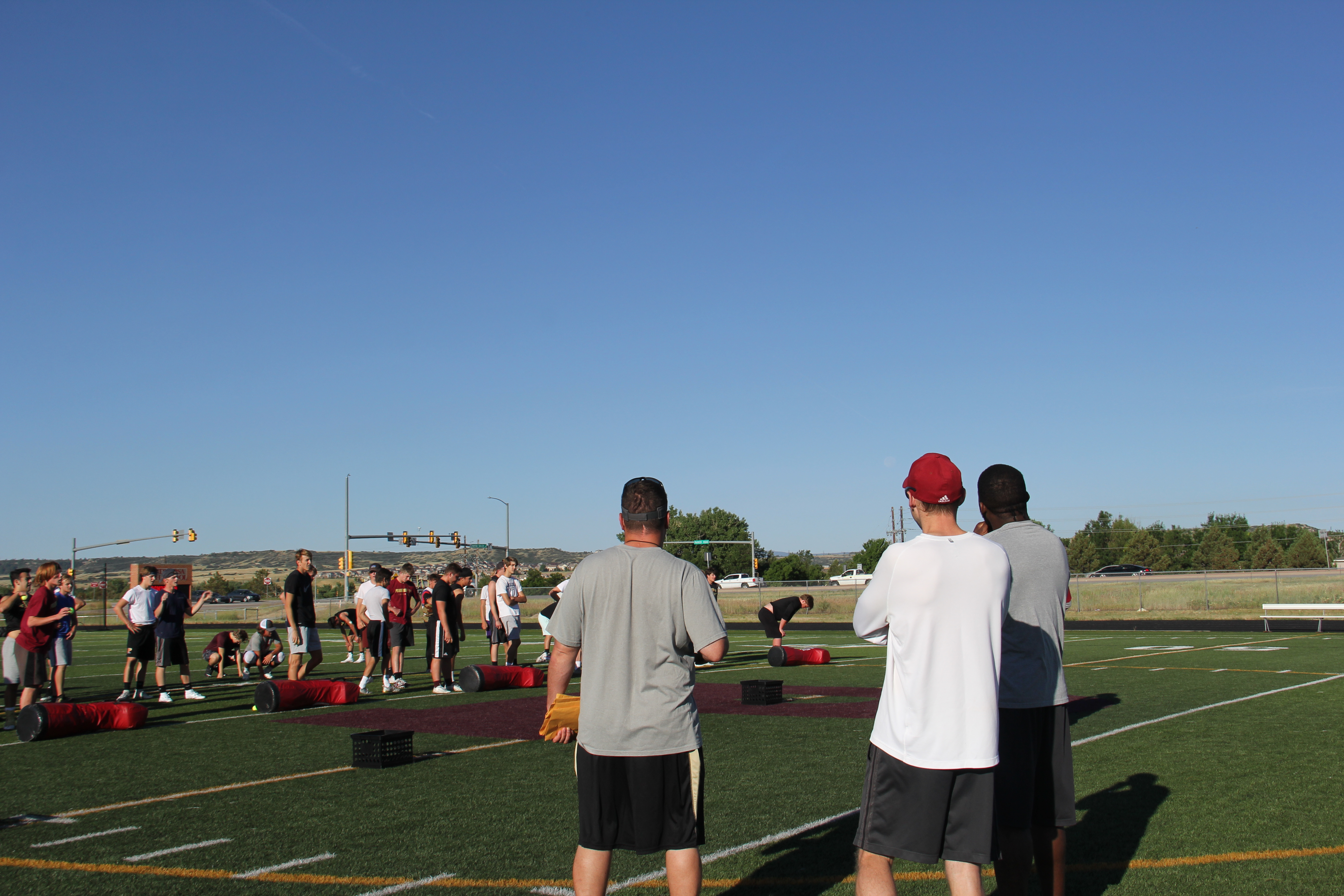Get Your Mind Right: 6 Common Questions around Mental Skills Training for Young Athletes
Mindset | Sports PerformanceABOUT THE AUTHOR

Jim Afremow
Dr. Jim Afremow is a much sought-after mental skills coach, licensed professional counselor, co-founder of the Champion’s Mind App, and the author of The Champion’s Mind, The Champion’s Comeback, and The Young Champion’s Mind. For over 20 years, Dr. Afremow has assisted numerous high school, collegiate, recreational, and professional athletes. Major sports represented include MLB, NBA, WNBA, PGA Tour, LPGA Tour, NHL, NFL, and the UFC. In addition, he has mentally trained several U.S. and international Olympic competitors. He served as the staff mental coach for two international Olympic teams, the Greek Olympic softball team and India’s Olympic field hockey team. He served as a senior staff member with Counseling Services and Sports Medicine at Arizona State University, and as a Mental Skills Coach and the Peak Performance Coordinator with the San Francisco Giants MLB organization.
// 6 Common questions around mental skills training for young athletes
Kareem Abdul-Jabbar once said, “Your mind is what makes everything else work.” Yet in youth sports onward, athletes spend the majority – if not all – of their time and energy on developing their physical qualities. To help redress the balance, we called up sports psychologist Jim Afremow. He served student athletes at Arizona State University for over a decade, was with the San Francisco Giants for three years, and helps Olympians, world champions, and athletes in every Major League sport elevate their mindset. Jim is also the author of The Young Champion’s Mind, adapted for teens from his bestselling mindset book for adults, and the creator of the new Champion’s Mind app. In this first of a two-part Q&A, Jim shares tips for youth sports coaches, parents, and athletes to get started with mental skills training, discusses the mindset challenges facing young players, and explains the power of practicing between the ears.

Your Title Goes Here
Your content goes here. Edit or remove this text inline or in the module Content settings. You can also style every aspect of this content in the module Design settings and even apply custom CSS to this text in the module Advanced settings.
How can young athletes benefit from goal setting?
Players of all ages fall into the trap of thinking too much in terms of extrinsic, results-oriented goals, such as, “I’m going to average this many points per game,” or “I want to win league MVP.” These can be powerful motivators and there’s nothing inherently wrong with them. But I’ve found from working with athletes young and old that also establishing process goals is beneficial, and is an opportunity to put mental skills into play. You might give young athletes a couple of examples, like, “Nobody’s going to work harder than me today,” or “I’m going to have the best body language on the field,” and then encourage them to adopt one of these or come up with their own. It could be something that varies from game to game and practice to practice, or a season-long goal to shoot for.
It can also be helpful to set team goals. You might decide your team is going to have the most fun in an upcoming tournament, or that you’re going to cheer the loudest for your teammates. Keep it simple and get everybody on board, and then review team and individual goals afterwards to see how well everyone did and identify room for improvement next time.
If a young player makes a mistake early in a game, it’s easy for them to get down on themselves. How would you suggest coaches and parents combat this?
An effective way is to get them to think of their favorite player – maybe it’s Steph Curry or Alex Morgan. Then ask them how he or she reacts when they miss a shot or when their team is losing. Do they let it bother them, kick the ground, and stop trying, or do they laugh it off and move on? Perhaps you come up with a few case studies, like how Curry hadn’t scored at halftime in one of the Warriors’ playoffs games but kept going and finished the game with 37 points. Then find out how they think they could use a similarly positive attitude for the rest of practice or in the next game. For a more intense personality, ask them to conjure up the image of someone like Draymond Green who yells at himself when he makes a mistake, but then turns around and plays hard on the defensive end to get his groove back. Champions have different ways of responding to adversity, but whether they’re quiet or loud about it, they all find a way to overcome obstacles and prevail in the end.
What about when a younger player loses their cool and gets really upset after a tough loss or because of not getting much playing time?
It’s tempting for a coach or player to either get annoyed in this situation, or to just totally dismiss it and say, “It doesn’t matter.” A better approach would be to remember that kids don’t regulate emotions as well as adults, and to acknowledge the validity of what the child is feeling. They usually freak out for three reasons. First, they care about the game. Second, they’re determined to improve their play. And third, they really want to win. Rather than criticizing them for having a bad attitude or for experiencing an emotion too strongly, start by explaining that they’re probably feeling this way because of these three factors, and that all three are good. Then work backwards from them to find ways to do their best in the upcoming practices and games, and to move past their disappointment.
What would be a good way to do that?
I’m a big fan of analogies because they’re something that helps illustrate a teaching point in a memorable way. Once I was at a sports conference and a coach started telling the story of how he uses a gas tank analogy to explain the need for recovery. He’d tell his players that when your car is running close to empty, you need to fill up at a gas station. Kids can probably understand that, but it’s not the best example because the age group he was addressing – 10 and 11-year-olds, aren’t old enough to drive. I would’ve switched things up and instead talked about when your phone battery gets into the red, you need to plug it in to charge. It’s not ideal that kids have smartphones on some levels, but you have to give them an analogy they can relate to.
So for moving on from a loss or not getting enough minutes, I’d ask them to imagine carrying a big rock around all day. You might even bring one to practice and ask each player to pick it up and walk with it for a few seconds. Then after everyone has done it, you can ask them if it felt heavy. They’ll probably say, “Yes.” You can explain that it was a burden just carrying this load for a few seconds. What about if they had to do if for hours? This is how regret is. Then ask them how much easier it was to walk without the brick. Much better, right? So let’s put that loss behind us, or the fact that we didn’t play much, and start thinking about how to do our best going forward.
What’s a common mistake coaches make with mental skills training?
There are two I see a lot. The first is a coach who says to themselves, “I’m not a sports psychologist, I don’t have the resources to bring one in, and I don’t have the time to read all these books on the topic, so I’m just going to stick to what I do best.” If I was talking to that person, I’d tell them that they don’t need to spend big money or a lot of time becoming an expert. Grasping the basics of a few mental skills like body-language, self-talk, and goal setting is actually easy and effective.
The second error comes when coaches are at the other end of the scale. They’ve realized the importance of mindset and so have educated themselves on the topic by reading books, attending seminars, and taking online courses. This is positive in theory, but then they often make the mistake of trying to drop all this knowledge on their players all at once. You don’t need to share everything you know. In fact, it’s better to go back to basics and just work on one quality at a time with your team. So maybe you choose confidence, and hone in on that for a month.
How can parents do better on game day?
Most parents are well meaning and it’s only a few that act out on the sidelines. But yet in a survey of high-level athletes, the number one stressor they identified from their youth sports days was pressure from parents and coaches. While you want to do your best to help your kids on game day, long speeches or complicated technical instructions are just going to hurt. If you say anything before the game, keep it to something straightforward like, “Just go out and do your best,” or just give them a high-five or pat on the back. And leave the coaching to their actual coaches. Then during the game, make it clear you’re having a good time. Rather than yelling at the refs or trying to coach from the bleachers, just clap and cheer. Don’t be looking at your phone either, because if the one time your child looks over to see what you’re doing and sees you texting, they’re going to think that they aren’t a priority, even if that’s not your intention.
After the game is over, don’t try to turn the ride home into a film room session where you break down every play. Give them the option to either talk about the game and how they played or not. They’re most likely physically, cognitively, and emotionally exhausted, so unless they’re analytical and want to go into details, they just want to eat, drink, wind down, and sleep. Give them the space they need to do that.
Are you a better coach after reading this?
More coaches and athletes than ever are reading the TrainHeroic blog, and it’s our mission to support them with useful training & coaching content. If you found this article useful, please take a moment to share it on social media, engage with the author, and link to this article on your own blog or any forums you post on.
Be Your Best,
TrainHeroic Content Team
HEROIC SOCIAL
HEROIC SOCIAL
TRAINING LAB
Access the latest articles, reviews, and case studies from the top strength and conditioning minds in the TH Training Lab

